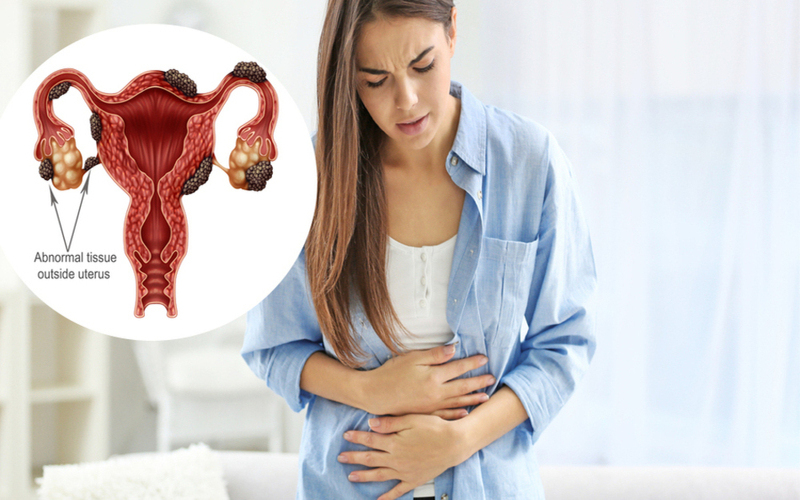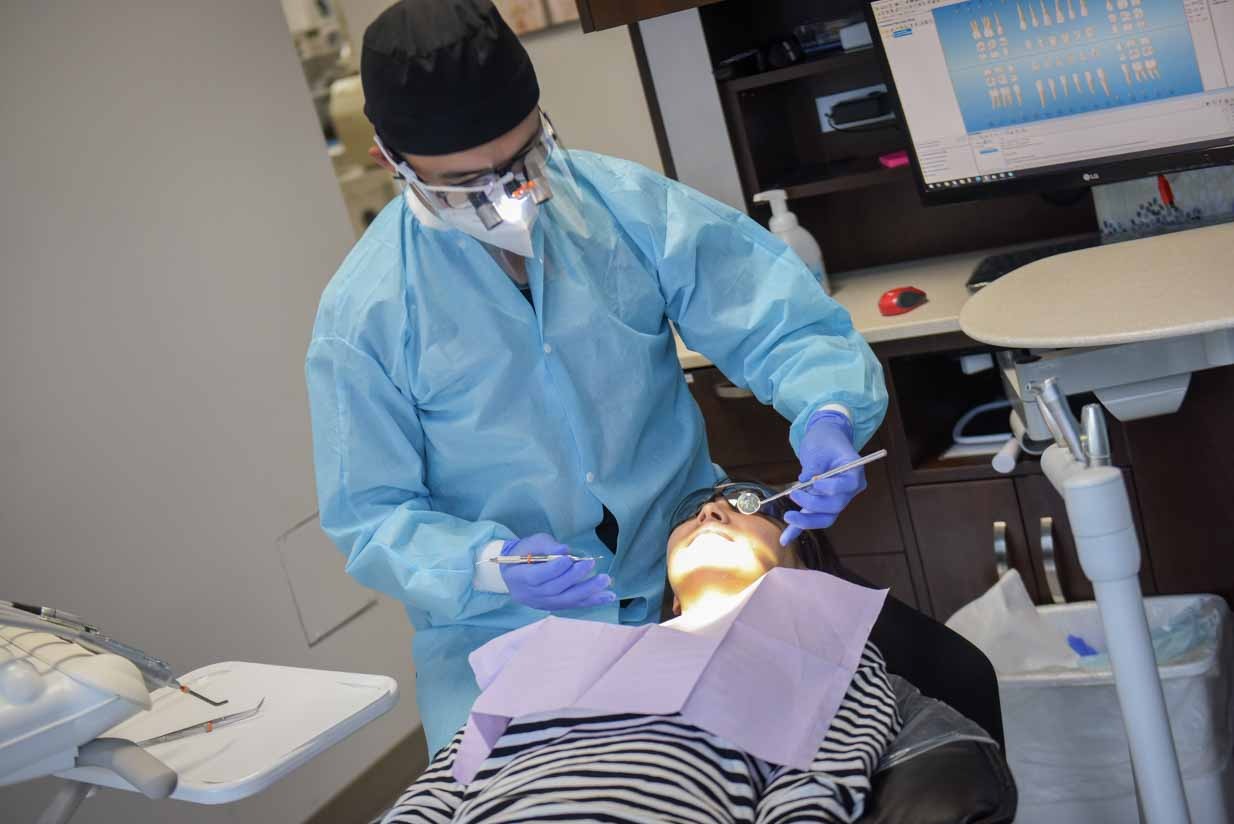Endometriosis is a very painful condition that affects millions of women worldwide. In India, too, over 25 million women are diagnosed with this health condition. However, due to a lack of knowledge and less awareness, many women still have no idea how to deal with it. If not diagnosed or treated on time, endometriosis can lead to serious consequences such as cysts that can grow or rupture, uterine enlargement, infertility, and extreme pain.
Usually, women in their reproductive age (15-49 years old) get diagnosed with endometriosis and deal with extreme pain and lower quality of life. Due to the complexity of this condition, it is rarely spoken about.
To raise awareness, let’s speak about the biggest signs of endometriosis and how to deal with it so you can plan your endometriosis treatment in Mumbai. To make this blog informative, we have talked with Dr. Chaitali Mahajan Trivedi at Nanavati Super Speciality Hospital. So, let’s discuss endometriosis to ensure one is aware of this condition and get effective treatment at the earliest.
Endometriosis: What Do You Understand About It?
Endometriosis is a condition in which tissue similar to the uterus lining grows outside of it. The lining of the uterus in medical language is known as endometrium.
Endometriosis results when endometrial-like tissues grow on your bowel, ovaries, and tissues lining your pelvis. Though it is rare for an endometrial-like tissue to spread beyond your pelvic region, minor chances are still there.
The unexpected hormonal fluctuations of your menstrual cycle affect the misplaced endometrial-like tissue, making the area more inflamed and painful. It means that the tissue follows the normal procedure of growing, thickening, and breaking down but into another region. As the tissue has nowhere to go, it becomes trapped in your pelvis.
What Are The Biggest Signs of Endometriosis?
Pelvic pain is considered to be the main symptom of pelvic pain. It is often linked with menstrual periods. However, it is common to have cramps during periods, but with endometriosis, menstrual pain becomes worse than usual and tends to increase over time. The common symptoms of endometriosis include:
- Pain during intercourse: Pain during intercourse is a common issue with endometriosis.
- Painful periods: Pelvic pain and cramping may start before menstrual periods and last for days. You may also experience lower back and stomach pain.
- Excessive Bleeding: In some cases, you may experience menstrual periods or bleeding between periods.
- Infertility: In some cases, a woman may experience infertility.
- Pain with bowel movements or urination: You are most likely to experience these symptoms before or during a menstrual period.
- Other Symptoms: Other symptoms you may experience are fatigue, diarrhea, constipation, bloating, or nausea. These symptoms are more common during menstrual periods.
Causes of Endometriosis
The exact causes of endometriosis are not clear, but some of the possible causes may include:
- Retrograde Menstruation: It results when menstrual blood flows back through the fallopian tubes into the pelvic cavity instead of out of the body.
- Endometrial cell transport: The tissue fluid system or blood vessels may move endometrial cells to other parts of the body.
- Surgical scar complication: Endometrial cells may attach to scar tissue from an incision made during surgery to the stomach area, such as a C-section.
- Embryonic cell changes: Estrogen hormone may transform embryonic cells in the earliest stages of development– into endometrial-like cell growths during puberty.
- Immune system condition: Any challenge with the immune system may make the body unable to recognize and destroy endometrial tissue.
- Transformed peritoneal cells: As per experts, hormones or immune factors aid in transforming cells that line the inner side of the abdomen (peritoneal cells) into those cells that line the inside of the uterus.
Risk Factors of Endometriosis
- Infertility
- Getting periods at an early age
- Going through menopause at an older age
- Shorter than usual menstrual cycle (27 days)
- Low body mass index
- Heavy menstrual periods (that last for 7 days)
- Higher estrogen level in the body
- Runs into family; mother and sister are diagnosed with endometriosis.
Major Complications & Risks
-
Infertility: Endometriosis can cause trouble when it comes to getting pregnant naturally. It occurs because endometriosis may block the tube and prevent the egg and sperm from uniting to develop into an embryo. Though women seeking medical treatment may get pregnant, even suffering from endometriosis, you don’t get upset if you think you cannot.
-
Ovarian Cancer: In some cases, it is seen that endometriosis raises the risk of ovarian cancer. Not only that, another type of cancer called endometriosis-associated adenocarcinoma can occur later in life in those who’ve had endometriosis.
How is Endometriosis Diagnosed?
The endometriosis issue can be diagnosed in the following ways:
- Pelvic Exam: This test is performed by manually palpating the areas in the pelvis to check for cysts forming on the reproductive organs or scars behind the uterus.
- Ultrasound: In this test, high-frequency sound waves are made to generate internal images of the body.
- Laparoscopy: This procedure allows the surgeon to have a detailed inside view of the abdomen
- Magnetic resonance Imaging (MRI): For this test, magnetic fields and radio waves are used to create detailed images of the organs and tissues within the body.
Treatment Options for Endometriosis
- Pain Medication: In the initial stage, a gynecologist in Juhu may recommend taking over-the-counter pills to ease painful menstrual cramps.
- Hormonal Contraceptives: Hormonal contraceptives, such as birth control pills, can help manage endometriosis by regulating the menstrual cycle, reducing pain, and suppressing the growth of endometrial tissue outside the uterus.
- Gonadotropin-releasing Hormone Agonists and antagonists: These drugs work by blocking the production of ovarian-stimulating hormones by reducing estrogen levels and preventing menstruation.
- Progestin Therapy: Progestin therapy for endometriosis leverages synthetic hormones to mitigate symptoms and create a hormonal environment. It is less conducive to the progression of endometrial tissue outside the uterus.
- Fertility treatment: Endometriosis can cause infertility. In such cases, IVF may help to conceive.
- Hysterectomy surgery: In this treatment uterus and ovaries are removed. This treatment is suggested when women are not looking to get pregnant, as it can result in menopause.
Conclusion
Endometriosis can make you experience chronic pain, irregular periods, and, in some cases, infertility. In order to tackle these causes, consulting a gynecologist and sexologist like Dr. Chaitali Mahajan Trivedi is a must. If you are seeking a female sexologist in Mumbai, you can end your research at Nanavati Super Speciality Hospital. Here, Dr. Chaitali Trivedi Mahajan will help you to plan your treatment effectively. She holds more than 25 years of experience and has helped many women plan their pregnancies while resolving all their health issues. To book an appointment with her, you can pay a visit to Nanavati Super Speciality Hospital in Mumbai.




